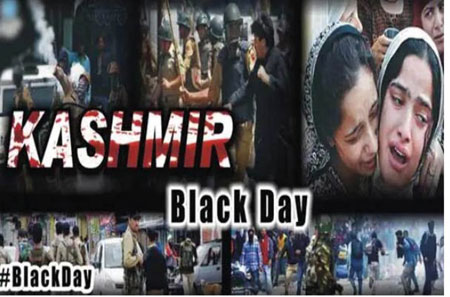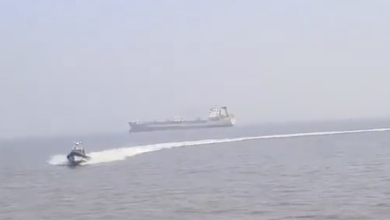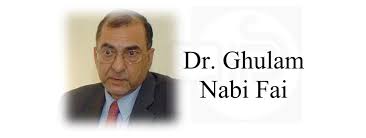
 October 1947 is a dark chapter in the history of Indian occupied Jammu and Kashmir. It is that turn of events which would go to set one of the world’s longest and most painful conflicts. This day left an indelible mark in the collective memory of the Kashmiris as a “Black Day”.
October 1947 is a dark chapter in the history of Indian occupied Jammu and Kashmir. It is that turn of events which would go to set one of the world’s longest and most painful conflicts. This day left an indelible mark in the collective memory of the Kashmiris as a “Black Day”.
This day marked the beginning of their struggle for identity, justice, and autonomy for decades to come. The brutal events that followed brutally exposed the glaring failure of international law, the indifference of world powers, and the oppressive nature of India’s role in Kashmir .A tragedy that continues to unravel until today.
The Kashmir conflict began on October 27, 1947, when Indian occupation forces entered Srinagar, following the controversial signing of the Instrument of Accession by Maharaja Hari Singh. This agreement was made in exchange for military assistance and was considered illegitimate by Kashmiris, as it ignored their right to self-determination. India’s military entry is remembered as “Black Day” by Kashmiris, as it marked the start of decades of conflict and their struggle for justice and political autonomy. India slowly strangled Kashmir, bringing in the military under the guise of “restoring order” and later entrenching its position through constitutional amendments and legal decrees.
In 1947, as tensions over Jammu and Kashmir escalated, India took the matter to the United Nations, seeking intervention in what had become an open conflict between India and Pakistan. The UN responded by passing multiple resolutions, including those emphasizing the right to self-determination for the people of Kashmir. These resolutions, particularly UNSC Resolutions 47 of 21 April 1948 and Resolution 98, adopted on December 23, 1952, called for a plebiscite to allow Kashmiris to decide whether to join India or Pakistan, a promise that remains unfulfilled. Before India approached the United Nation, Dogra forces and Hindu extremists from nearby states carried out the Jammu massacre of 1947, where over 250,000 Muslims were killed in communal violence, leading to the forced migration of more than 500,000 Kashmiris into Pakistan. This bloodshed, coupled with the subsequent war between India and Pakistan, further deepened the crisis and cemented Kashmir’s place as a highly contentious issue in South Asia, with the international community still failing to resolve the matter in line with the Kashmiri people’s right to self-determination.
Indian military presence has a long history of human right abuse. Some of the most brutal examples are 1991 Kunan-Poshpora mass rapes, many women’s became victim of gang rape by Indian soldiers. From Gawkadal massacre of 1990, where more than 50 unarmed protesters were murdered by Indian forces, to 19 other mascaras and daily basis right abuse shows strong examples of state-sponsored violence that has gone unpunished. These incidents do not like what happens barely, but these are part of suppression caused by the Indian military that has turned Kashmir into one of the most militarized zones in the world.
The Indian government has never tried to address the grievances of Kashmiri people. Instead of carrying out dialogue and negotiations the Indian government relies more on increasing militarization, surveillance in the region that further oppresses the population of Indian administered Kashmir. These acts have not only caused insurgencies but also implanted an outlook of fear among the locals of Kashmir.
Long-standing Kashmir conflict exemplifies that international law is a weak law. It’s a great failure of international law. Many UN resolutions called for a plebiscite but nothing happened. World is like a passive viewer to India’s brutal and illogical acts in Kashmir. International bodies and human rights organizations time and again highlighted the abuses in Kashmir but nothing stops India from doing so. The geopolitical interests of India and its ever-growing economic and strategic influence over the global economy makes human rights concerns of Kashmiris irrelevant. Global apathy, driven by economic and diplomatic considerations that allowed an entire population to be at the mercy of its rulers under military rule.
Although the incident of October 1947 is the foundation for the Kashmir conflict. The crisis became more intense in August 2019 when under the leadership of Narendra Modi the Indian government unilaterally abrogated Article 370 and removed special status from Jammu and Kashmir. Not only was it unconstitutional, but it was also allegedly the death knell for Kashmir’s autonomy. The region was parted and reduced to a Union Territory. That places this region directly under New Delhi’s control. And the abrogation of Article 370 came with an unprecedented crackdown: communication blackouts, mass detentions, and further influx of troops. The valley was cut off from the world for months while people silently suffered. The Modi government’s actions speak to a dangerous shift in authoritarianism where dissent is criminalized and democratic rights are systematically curtailed.
The reaction from the international community to abrogation of Article 370 has been lukewarm, to say the least. While some of them have raised their voices, their words are largely transactional. New global geopolitical order has muffled dissenting voices, and the Kashmiris are caught between the power play of global politics and once again turning on themselves for less of a blunder.
Over 77 years after the events of 1947, their impact continues to haunt Kashmir, with India’s actions further complicating the situation. India must acknowledge the legitimate aspirations of the Kashmiri people and engage in meaningful dialogue for lasting peace. The international community must act against India’s erosion of democracy and human rights. The struggle for justice and dignity in Kashmir, particularly since October 1947, remains unfinished. Kashmiris deserve a future where their voices are heard, their rights respected, and their dreams realized—despite the world’s persistent neglect of their plight.
(The writer is a student at National University of Modern languages, and is currently serving as an intern at Kashmir Institute of International Relations)








